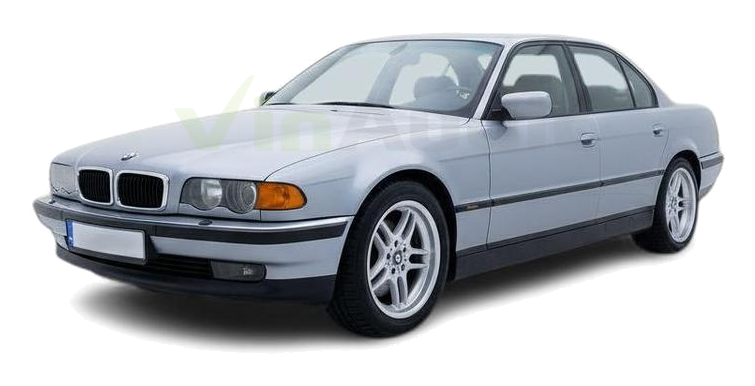Warning: Undefined array key "year" in /home/dev2/public_html/wp-content/themes/Divi-child/shortcodes.php on line 298
Warning: Undefined array key "make" in /home/dev2/public_html/wp-content/themes/Divi-child/shortcodes.php on line 298
Warning: Undefined array key "model" in /home/dev2/public_html/wp-content/themes/Divi-child/shortcodes.php on line 298
The Good
The 2000 BMW 7-Series offers a compelling blend of performance and luxury. Its powerful V8 and V12 engines deliver smooth acceleration and a refined driving experience appealing to enthusiasts. The comfortable and spacious cabin, coupled with a sleek design, provides a luxurious ambiance. While reliability can be a concern, well-maintained models offer reasonable value and a sense of prestige for practical buyers.
The Bad
The 2000 BMW 7-Series is prone to certain issues. Watch out for failing cooling systems (radiator, water pump, hoses), pixel loss in the instrument cluster, and problems with the electronic systems. Suspension components, particularly the air suspension on some models, can also require attention. Regular maintenance is critical to avoid costly repairs.
2000 BMW 7-Series: Quick Overview
- Engine Options:
- 4.4L V8 (740i/740iL)
- 5.4L V12 (750iL)
- Horsepower:
- 740i/740iL: 282 hp
- 750iL: 322 hp
- Fuel Economy (EPA Estimated):
- 740i/740iL: 15 mpg city / 22 mpg highway
- 750iL: 13 mpg city / 20 mpg highway
- 0-60 mph Times (Approximate):
- 740i/740iL: 6.3 seconds
- 750iL: 6.6 seconds
- Towing Capacity: Not officially rated for towing.
- Trim-Level Features:
- 740i: Leather upholstery, power front seats, automatic climate control, premium sound system, sunroof, alloy wheels.
- 740iL: Adds extended wheelbase for increased rear legroom, rear climate controls, and often included additional luxury features.
- 750iL: Includes all features of the 740iL, plus a V12 engine, upgraded leather, self-leveling suspension, and additional luxury appointments like a premium sound system with additional speakers and upgraded interior trim.
- Standard features across trims: Included stability control, anti-lock brakes, numerous airbags, and power everything.
- Optional Features: Could include navigation system, heated seats, upgraded audio, and various interior and exterior styling packages.
2000 BMW 7-Series Specifications
Vehicle History Report
What Problems Does the 2000 BMW 7-Series Have?
How long will the 2000 BMW 7-Series last?
What Technology & Safety Features are Included?
What Colors Options are Available?
Exterior Colors
Interior Colors
2000 BMW 7-Series Prices and Market Value
2000 BMW 7-Series Cost of Ownership
2000 BMW 7-Series Fuel Efficiency
2000 BMW 7-Series Insurance
reasonable repair costs.

